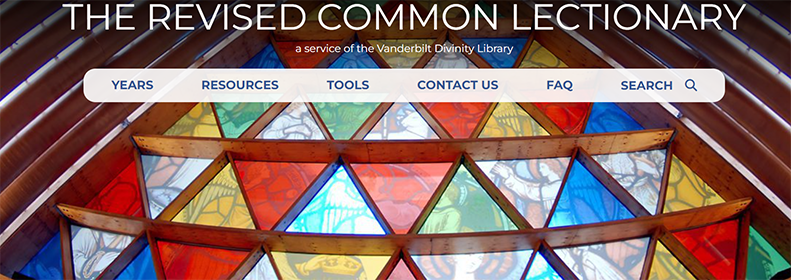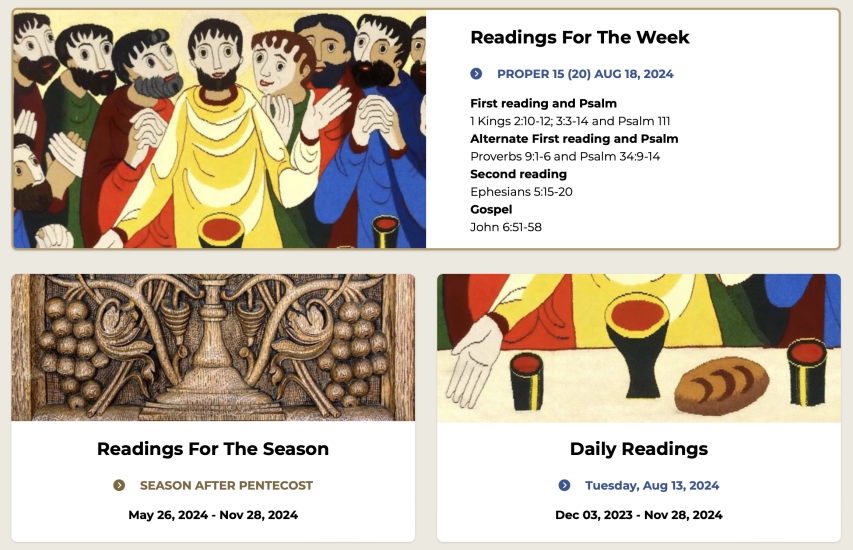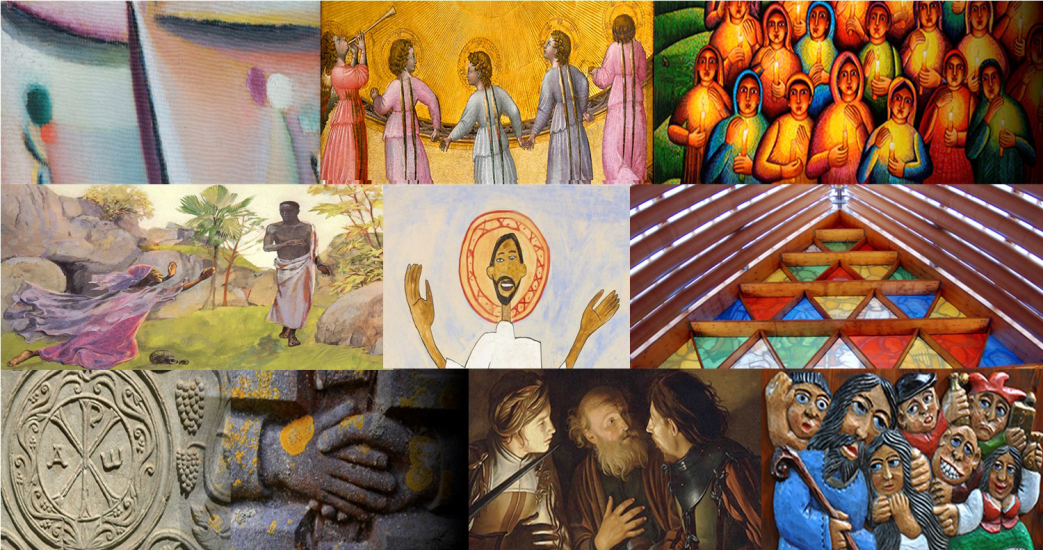
(Vanderbilt University)
A valuable free resource from the Jean and Alexander Heard Libraries’ Divinity Library is making Christian worship more accessible to millions of biblical scholars, church leaders and congregants worldwide.
The Divinity Library has launched a new version of its popular Revised Common Lectionary website. The RCL is a collection of weekly Bible readings centered on the life and ministry of Jesus Christ adopted by numerous church bodies and individual congregations to read concurrently each Sunday throughout the liturgical year.
In addition to a more mobile-responsive design, the updated website features easily accessible lectionary readings from the New Revised Standard Version Updated Edition of the Bible, links to thousands of scripture-related art images, lectionary prayers, worship service outlines and more. Established in 1996, the Divinity Library’s site has become an authoritative source for the RCL, receiving more than a million visits each year for the last five years across the United States and the world—making it Vanderbilt University’s second most-visited site on the web.
“The Revised Common Lectionary is a powerful tool for worship and personal reflection, and the Divinity Library’s site has served as a trusted resource for the RCL for nearly 30 years,” said Bobby Smiley, director of the Divinity Library and librarian for the College of Arts and Science. “This latest iteration of the site includes streamlined navigation, updated features and a beautiful new interface designed to improve accessibility to the RCL and enhance the practice of Christian worship.”

The RCL follows a three-year cycle of weekly readings built around the seasons of the church year. Four readings are highlighted each Sunday, with additional readings for major feast days. During most of the year, the lections include a reading from the Hebrew Bible, a Psalm, a reading from the Epistles and a Gospel reading. Since the seasons of the liturgical year reflect the life and ministry of Christ, the Gospel readings for each Sunday provide the focus for that day. Vanderbilt’s RCL site also includes daily lectionary readings for personal devotion that complement the Sunday and festival readings.
Several features unique to the Divinity Library’s site have contributed to its popularity and made it a preferred resource for the RCL, said Charlotte Lew, coordinator for digital projects at the Divinity Library.
Vanderbilt’s RCL site includes the Art in the Christian Tradition database, also hosted by the Divinity Library, which pairs free art images with scripture. Designed for use by scholars, pastors, religious educators and students to supplement the lectionary readings, the ACT database boasts more than 7,000 images of architecture, frescoes, manuscripts, mosaics, paintings, sarcophagi and sculpture. The database is searchable by keyword, scripture reference, iconographic content, personal name, time period and geographic location, and any of the images may be used for non-commercial purposes, with attribution.

The Divinity Library also has developed a robust set of resources to supplement use of the RCL. These include PowerPoint and PDF slideshow presentations that highlight selected texts from each of the Sunday lectionary readings along with corresponding images; black-and-white art illustrations for each Sunday or special day reading formatted for print materials, online worship or church websites; and lectionary materials available in printable formats for use as handouts, bulletin inserts or Bible study. The site also includes a digital calendar integration that syncs the RCL with Google Calendar, iCal and Outlook.
“But the real ‘gold’ of our project is that it’s completely free and open access,” said Lew, who has managed the Divinity Library’s site since early 2023. Lew credits the dedication and comprehensive approach of former Digital Projects Librarian Anne Richardson, who retired from the libraries in 2022, and the late Jodie Gambill, digital projects librarian and web development lead who died in April after a lengthy battle with cancer, with the website’s overwhelming success.
“Anne created and managed the site for almost three decades, and Jodie continually provided state-of-the-art tech support from 2009 to the spring of 2024,” Lew said. “Their vision and professionalism enabled the renovation of the new site.”
Over the past two years, Lew worked closely with Steven Baskauf, a recently retired data science and data curation specialist in the Heard Libraries’ Digital Lab, to transpose thousands of Art in the Christian Tradition images from Vanderbilt databases to the open access Wikidata platform to increase their accessibility and discoverability. The effort, which focused on improving the quality of the images’ metadata and relied on Baskauf’s expertise in linked data principles and methodology, became the subject of two published papers, contributing to the larger body of digital scholarship. But the most rewarding aspect of the RCL initiative, Lew said, is the real-world impact it has on ministry and worship. She has fielded more than 200 messages from everyday users since the updated website launched in mid-July.
“The Divinity Library’s Revised Common Lectionary is a testament to the power of open data, the ingenuity of our staff, the Heard Libraries’ global reach and their commitment to making scholarship and resources available to the public,” University Librarian Jon Shaw said. “I commend everyone who has contributed to this project, which is having a profound effect on people’s lives.”